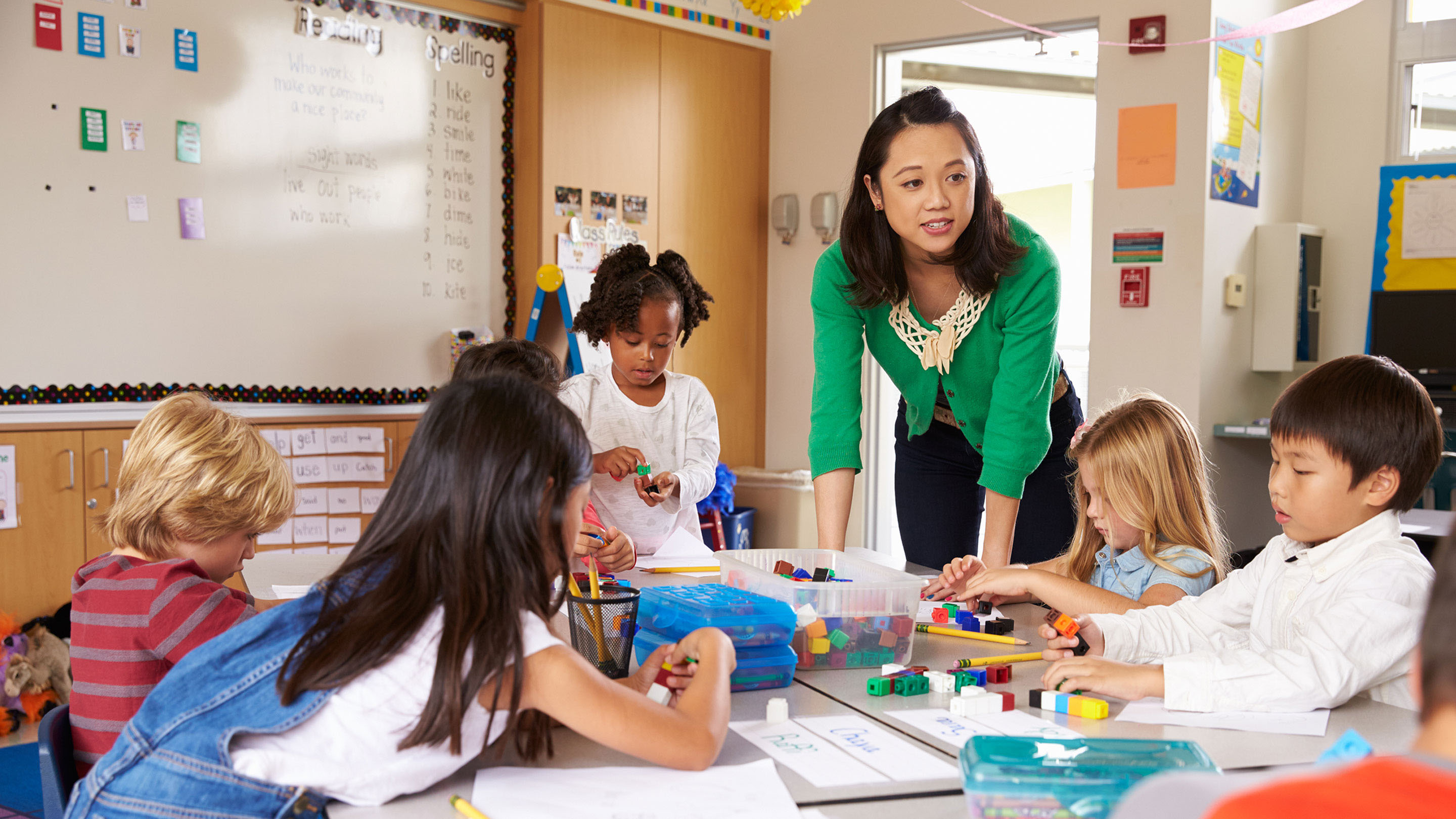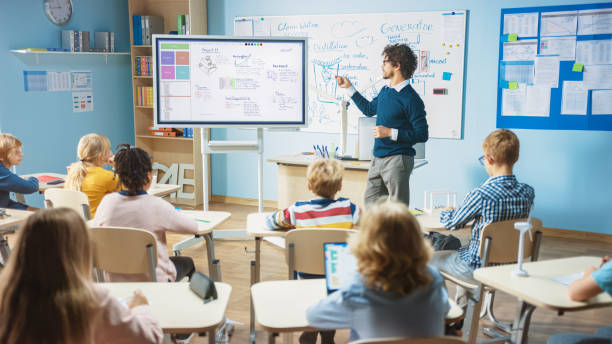Find the Best Primary Science Tuition Singapore for Enhanced Learning
Find the Best Primary Science Tuition Singapore for Enhanced Learning
Blog Article
Discover the Crucial Benefits of Recognizing Primary Scientific Research for Young Learners
The importance of main science education for young learners expands much past plain expertise acquisition; it offers as a fundamental pillar in establishing important skills such as important reasoning, analytical, and creative thinking. Engaging with clinical ideas through inquiry-based and interactive activities not only grows inquisitiveness yet likewise lays the groundwork for resistant, confident students.
Enhancing Vital Assuming Abilities
Cultivating vital thinking abilities in young learners is essential for their cognitive development and future academic success. Important thinking makes it possible for children to assess information, examine evidence, and make informed choices, which are vital abilities in today's information-rich culture. By involving in scientific inquiry, young students can improve these abilities as they discover ideas via trial and error, thinking, and monitoring.
In key science education and learning, educators can assist in critical reasoning by urging pupils to ask questions, develop hypotheses, and carry out experiments. This hands-on technique enables children to practice problem-solving and develop rational reasoning abilities. For instance, when students explore the residential properties of products or the concepts of activity, they find out to analyze their findings critically and reason based on proof.
Furthermore, discussions and collaborative projects can advertise essential reasoning by giving chances for learners to articulate their ideas, difficulty presumptions, and consider diverse perspectives. By producing an encouraging environment that values query and reflection, teachers can nurture vital believing abilities that empower young students to become independent thinkers and long-lasting students. Eventually, boosting these skills lays a robust structure for their future scholastic endeavors and individual growth.
Promoting Interest and Expedition

Primary scientific research education and learning provides a structured setting where young students can explore various phenomena with hands-on experiments and monitorings. By permitting them to interact with products and participate in inquiry-based knowing, teachers produce chances for youngsters to formulate hypotheses, check their ideas, and draw verdicts. Such experiences nurture a feeling of marvel and exhilaration concerning scientific research.

Structure Self-confidence in Trouble Solving
Structure self-confidence in analytical is an important element of key science education that equips young students to come close to difficulties with strength and imagination - primary science tuition Singapore. When children are motivated to engage with scientific principles with hands-on tasks and inquiry-based knowing, they develop necessary skills in essential thinking and analysis. This process not only official website boosts their understanding of clinical concepts but additionally promotes a feeling of ownership over their discovering
To construct self-confidence, teachers need to produce a helpful setting where blunders are watched as chances for growth instead than failings. This urges pupils to take threats and explore numerous services to problems. By offering scaffolding and assistance, instructors can assist students navigate complicated jobs, gradually enhancing their independence in analytical scenarios.
Additionally, joint knowing experiences, such as team jobs or experiments, can further enhance trainees' self-confidence as they find out to express their thoughts and pay attention to others' perspectives. These communications nurture social abilities and reinforce the idea that analytic is commonly a you could check here cumulative endeavor. Inevitably, cultivating confidence in analytic prepares young learners for future academic difficulties and furnishes them with the devices necessary for long-lasting understanding.
Urging Creativity and Advancement
In the realm of primary science education, motivating creativity and advancement is essential for growing a vibrant discovering setting. By fostering a culture where young learners can discover concepts and experiment freely, educators help trainees establish important assuming abilities and a passion for exploration. Imagination in science encourages children to ask concerns, develop hypotheses, and engage in hands-on tasks that stimulate their imagination.
Integrating open-ended tasks and inquiry-based understanding right into the curriculum permits students to reveal their distinct point of views and remedies. For example, when entrusted with addressing an issue pertaining to their environment, students can brainstorm numerous techniques, bring about creative results that display their creativity. This not just strengthens their understanding of scientific ideas yet additionally instills a feeling of possession over their discovering process.
Furthermore, innovative scientific research education and learning nurtures collaboration among peers, as students usually share concepts and improve each other's insights - primary science tuition Singapore. This joint spirit promotes not only technology yet also necessary social abilities. Thus, by prioritizing imagination and innovation in primary science education, we encourage young learners to assume seriously, embrace challenges, and imagine opportunities, laying a solid structure for long-lasting knowing and expedition
Getting Ready For Future Learning Difficulties
Young students' capability to navigate future knowing difficulties rests on a solid foundation in primary scientific research education and learning. This fundamental understanding outfits students with crucial assuming skills and an organized approach to problem-solving, vital for dealing Read Full Report with intricate problems in an ever-evolving world. Primary scientific research fosters inquiry-based learning, motivating students to ask inquiries, explore hypotheses, and involve in hands-on experiments.
As they establish these abilities, learners become experienced at evaluating data, acknowledging patterns, and attracting informed verdicts. Such proficiencies are important not just in scientific fields however also in math, engineering, and technology (STEM), where interdisciplinary knowledge is progressively important.
In addition, primary scientific research education cultivates a feeling of curiosity and strength in young students, allowing them to check out difficulties as chances for development. As they encounter and overcome obstacles in their scientific expeditions, they build confidence in their capability to introduce and adjust.
Eventually, a solid foundation in main scientific research not only prepares young learners for academic searches yet likewise furnishes them with the tools required for long-lasting knowing and adaptability in a swiftly transforming international landscape. By purchasing main science education and learning, we are investing in the future capacity of our students.
Verdict
Understanding main scientific research is vital for young students, as it fosters vital thinking, inquisitiveness, and creativity. Involving with clinical principles with hands-on experiments constructs and enhances analytic capabilities durability. This fundamental understanding not only gears up trainees to evaluate data and recognize patterns however additionally supports an inquiry-based mindset. Inevitably, the advantages of primary science education prepare children for future scholastic searches and infuse long-lasting discovering behaviors important for prospering in an ever-evolving globe.
The relevance of primary science education and learning for young learners expands far past mere knowledge acquisition; it offers as a basic column in establishing important abilities such as vital reasoning, problem-solving, and creative thinking. By producing a supportive atmosphere that values inquiry and representation, teachers can nurture vital thinking abilities that empower young students to become lifelong students and independent thinkers. Thus, by prioritizing imagination and technology in primary science education, we empower young learners to believe critically, accept challenges, and picture possibilities, laying a strong structure for lifelong knowing and expedition.
Young learners' capability to browse future learning challenges pivots on a solid foundation in main science education and learning.Recognizing key science is important for young students, as it promotes essential reasoning, curiosity, and creativity.
Report this page